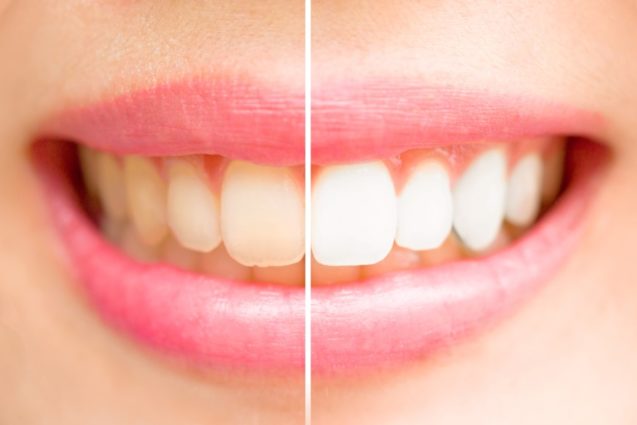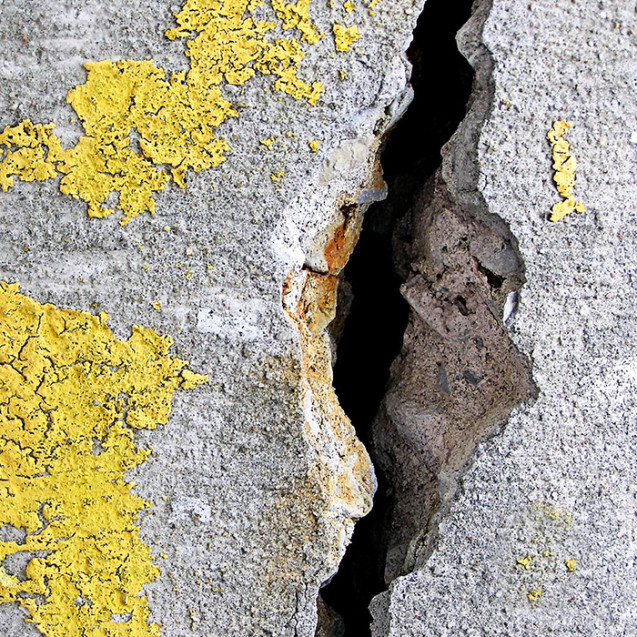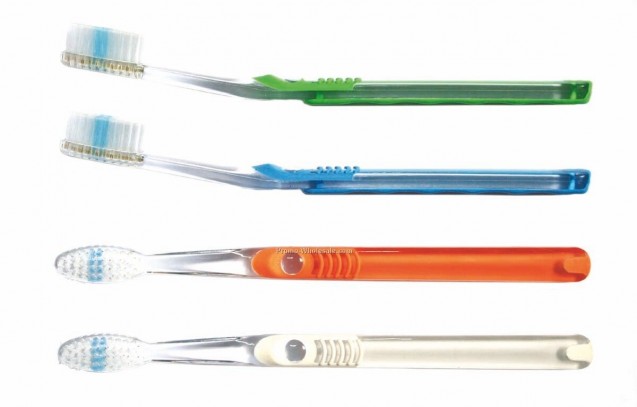By hassan
11 Feb, 2017
Dental Care, dental prevention tips, dentist, Health Tips
best dentist mississauga, bright smile, brushing teeth tips, brushing your teeth, dental care, dental prevention Archive, dentist, Dr. Hassan Dental (formerly radiant dental), how to brush your teeth, tips on healthy teeth, tooth corner, toothbrush
We’ve all heard our dentists tell us to “brush twice a day and floss regularly.” But is that all you need to do to build strong teeth and gums? Not exactly. The following are many do’s and don’ts of brushing your teeth to ensure they stay at their healthiest, strongest and brightest.
Tooth Brushing Dos:
- Brush with fluoride toothpastes and gels. Fluoride is a naturally occurring element that helps prevent and even reverse early stages of tooth decay.
- Choose a toothbrush that is appropriately sized and use a soft-bristled brush. Bristles that are too hard can injure your gums and cause recession.
- Brush for 2 minutes covering all sections of the mouth (upper, lower, inside, outside or behind). A motorized (electric or battery-operated) toothbrush with a timer can be a great choice; as most people don’t realize 30 seconds per mouth section is a long time. Don’t forget to use short, gentle strokes that cover one or two teeth at a time.
- Brush shortly after you’ve consumed anything particularly sweet or chewy, in addition to the normal two times a day (morning and bedtime). If it’s not convenient to brush, rinse with mouthwash or water to wash away food particles, sugar residue and to help dilute acids produced by decay-forming bacteria.
- Replace your toothbrush every 3 months or whenever the bristles start showing signs of excessive wear. Also replace after any illness (cold, flu, etc.). Germs can live on the bristles so if you continue to use the same toothbrush, it could lead to reinfection.
- Brush your tongue once a day with a toothbrush or tongue scraper. Sulphur-emitting bacteria can reside on the tongue surface and are largely responsible for bad breath. One or two swipes from back to front will suffice to reduce the bacterial count in your mouth and help control halitosis.
- Keep toothbrush heads dry after use.
Tooth Brushing Don’ts:
- Don’t ever share toothbrushes with anyone, even your family members. Germs and gum disease can be transferred via moist brushes.
- Don’t brush your teeth within 30 minutes of consuming acidic (citrus fruit) foods or beverages (juices, sports drinks, soft drinks). The acids soften the tooth structure and make them more susceptible to abrasion through brushing.
- Don’t use a hard-bristled brush or excessive force. You are cleaning your teeth and gums, not the grout between your bathroom tiles! Be gentle.
- Don’t allow children 2 years old and under to ingest toothpaste. Children should always brush teeth under the supervision of an adult. Tip: Children need assistance with oral hygiene until they possess the dexterity to tie their own shoelaces.
- Don’t forget to rinse! Rinsing collects and discards all of the bacteria you just brushed from your teeth and gums and prevents it from re-depositing on the tooth surface.
- The Most Important Don’t: Don’t forget to schedule regular checkups with your dentist (Like us) every 6 months. Bi-annual professional cleanings and exams are the easiest way to avoid painful and costly dental problems in the future.
Share this with your friends and family and let us know if you have any other tips to keeping your teeth healthy!
More
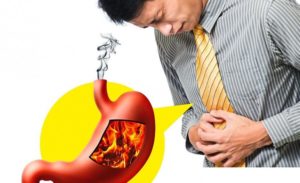
If you’ve ever had acid reflux, you know it can be a terrible experience. Not only does it damage your esophagus and stomach lining, but it can also damage your teeth. Acid reflux occurs when some of the acidic stomach contents go back up into the esophagus, creating a burning pain in the lower chest area, often after eating. If your acid reflux is severe enough, it can even cause erosion in your teeth.
Stomach acid is at a PH level of 2.0, and teeth can dissolve if the PH level is 5.5. This can lead to severe oral damage such as erosion of teeth in the future if eating habits are not changed.
Ways to prevent acid reflux are:
- Avoid eating acidic foods and foods that can cause acid reflux. (ex. Tomatoes, citric fruits, spicy & fried foods, fatty meats, dairy, chocolate and caffeine)
- Consume lots of water and vegetables
- Maintain a healthy weight
- Eat smaller portions
- Avoid laying down for 3 hours after eating a meal
- Elevate your head while lying down
- Avoid smoking
- Cut back on alcohol consumption
- Wear loose fitting clothes
- Try a gluten-free diet
- Medications
If you are diagnosed with acid inducing erosion, the following will help minimize the effects:
- Continue to avoid foods that cause acidic reflux(as stated above)
- Avoid brushing teeth for 60 minutes after acid reflux episodes
- Rinse mouth with water after an occurrence
- Take a sugar-free antacid and let it dissolve in your mouth
- Chew sugar free gum, lozenges or candies
More
MANY OF US HAVE HAD at least one cavity in our lives, and if we don’t keep up on our oral hygiene, it’s likely that we’ll get a couple more as time goes by.
While cavities may be inconvenient, it’s imperative that we get them treated immediately. Early treatment of cavities prevents long-term damage to our teeth and is essential to maintaining a beautiful, healthy smile!
Cavities Are A Sign Of Tooth Decay
A cavity is a small hole that develops on your tooth when it begins to decay. Harmful bacteria is contained in the plaque that sticks to our teeth. This bacteria produces acid that eats away at our teeth and causes cavities if the plaque is not removed. If left untreated, the cavity can grow larger and cause permanent damage to the tooth.
Letting cavities fester is more common than you think. Approximately 28 percent of adults are living with untreated cavities. Because cavities are so commonplace, some may think they can leave them untreated, either to save money or spare themselves a filling. It is important to remember, however, that a cavity is considered an infection that requires prompt treatment.
Cavities Will Continue To Grow If Left Untreated
Cavities can only get worse with time. Once that harmful bacteria creates a cavity, it will continue to grow if not repaired with a filling. To further understand the damage a cavity can do to your tooth, let’s go over some tooth anatomy.
A tooth consists of three parts:
- The hard and protective outer layer called the enamel
- The middle layer called dentin
- The inner layer called the pulp, which contains the tooth’s blood vessels and nerves
The enamel is the tooth’s first line of defense against cavity-causing bacteria. If treatment is postponed, the bacteria will eventually get through the enamel and enter into the layer of dentin, and eventually, the pulp.
If cavity-causing bacteria is allowed to reach the dental pulp, it can lead to a condition known as pulpitis, or inflammation of the pulp. If treated quickly, pulpitis can be treated with a simple filling. If left to progress, more serious measures may need to be taken such as a root canal or tooth extraction.
Your Health And Comfort Are Our Priority
In the end, the ideal option is to prevent cavities before they even occur! At our practice, your health and comfort are our priority. We are your partners in helping you maintain a cavity-free, beautiful smile!
Thank you for choosing Dr. Hassan El-Awour’s Dental Office in Mississauga.
Image by Flickr user Bob G used under Creative Commons Attribution-ShareAlike 4.0 license. Image cropped and modified from original.
More
TIME TO THINK ABOUT YOUR DRINK! Many of us know the harmful effects of sugary and acidic drinks on our teeth. When we drink sweet beverages, sugars in the drink combine with bacteria in our mouths to produce acids that wear away our teeth. Even “diet” and “sugar-free” options contain their own acids that can weaken tooth enamel.
Making good drink choices can not only save your smile, but it can improve your overall health as well! Here are a few ways to protect your health:
Drink more water–not only does it not contain any sugar or acid, water also hydrates better than sugary drinks.
Drink soft-drinks in moderation, if at all.
Use a straw–this causes your teeth to be less exposed to the sugar and acid in drinks.
Don’t drink sugary drinks before bed–if you do, sugar and acid will remain on your teeth throughout the night.
We’ve noticed that our patients who make healthier drink choices have fewer cavities and healthier teeth. It takes time to get rid of any habit. Usually around 40 days. Commit yourself to water for 40 days and see the difference for yourself. Not just in your oral hygiene but your overall health as well.
Take The Pledge!
This month, we’re asking our patients to take the pledge to “Think About Your Drink”! Throughout the month, you can come into our office and pledge to make an effort to make healthier drink choices. By taking the challenge, you promise to make an effort to switch sugary and unhealthy drinks for water and by doing so, you are entered to win a prize at the end of the month.
We’ll be giving away a brand new Samsung Galaxy tab for one lucky winner. We will select one lucky winner from our raffle. The promotion will end on October 10th.
We’re Really Excited About This Promotion, Because it’s a chance for us and our patients to make a positive change in our lives.
It’s easy and everybody wins! Choosing to make healthier drink choices will protect your teeth and help maintain your beautiful smile. Even one less sugary drink per day can make a huge difference in improving your whole-body health.
Renowned dentists in Mississauga always advice to take preventive measures to protect dental health.
Good luck and Think About Your Drink!
More
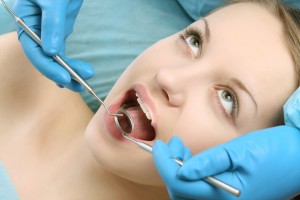
According to a surprising new study, people who have more dental cavities are at lower risk of being diagnosed with head and neck cancer, compared with patients who have few or no cavities.
Dental cavities (or caries) are caused by tooth decay. This is when the bacteria present in the mouth make lactic acids that strip away minerals in the tooth by fermenting carbohydrates.
According to the researchers from the University at Buffalo, NY, previous studies have shown the bacteria that causes tooth decay is linked to an immune response, which may be protective against cancer.
For this study, published online in JAMA Otolaryngology – Head and Neck Surgery, the researchers set out to determine if there is a significant link between dental cavities and Head and Neck Squamous Cell Carcinoma (HNSCC).
The study involved 399 patients newly diagnosed with HNSCC, and 221 participants without the cancer who were all selected from the Department of Dentistry and Maxillofacial Prosthetics at Roswell Park Cancer Industry between 1999 and 2007.
The researchers analyzed the dental history of all patients, particularly their history of dental cavities, by measuring the number of decayed, missing and filled teeth.
Dental cavities a form of ‘collateral damage’
Of the 399 patients with HNSCC, 146 (36.6%) had oral cavity squamous cell carcinoma (SCC). Oropharyngeal SCC occurred in 151 (37.8%) patients, while 102 (25.6%) had laryngeal SCC.
The results of the study overall showed that those who had high cavity numbers and who placed in the top third of participants were less likely to have HNSCC, compared with participants who had low cavity numbers in the bottom third.
The study authors explain:
“Caries is a dental plaque-related disease. Lactic acid bacteria cause demineralization (caries) only when they are in dental plaque in immediate contact with the tooth surface. The presence of these otherwise beneficial bacteria in saliva or on mucosal surfaces may protect the host against chronic inflammatory diseases and HNSCC.
We could think of dental caries as a form of ‘collateral damage’ and develop strategies to reduce its risk while preserving the beneficial effects of the lactic acid bacteria.”
The researchers say that a potential strategy to reduce the risk of dental cavities while still preserving the lactic acid bacteria could be to implement mechanical plaque control, preservation of saliva and use of fluoride, as well as controlling diet and other risk factors.
They add:
“Future studies assessing the potential effects of the oral microbiome and associated immune responses on HNSCC will help elucidate the biological mechanism of the clinical association that we have observed in this study.”
Medical News Today recently reported on a study that suggested poor oral health and gum disease could lead to a higher risk of throat cancer.
Written by Honor Whiteman
Copyright: Medical News Today
More
Teaching your toddler to take care of his teeth is just one way you can show your growing child how to take responsibility for his body. This can be a challenge because 3-year-olds are motivated mainly by fun and pleasure, not by health and necessity. If you want to end his resistance to brush, your best bet is to make this nightly chore a fun ritual for him. Here are a few tricks you can use to do just that:
More
From the time we’re young, we’re taught that using a Toothbrush regularly is one of the best ways to keep our teeth and gums healthy. But which toothbrush is best?
You can’t overestimate the importance of good oral hygiene — not only for dental health, but for your overall wellbeing. In fact, gum disease is a major risk factor for the development of serious health conditions, including heart disease and diabetes.
More

